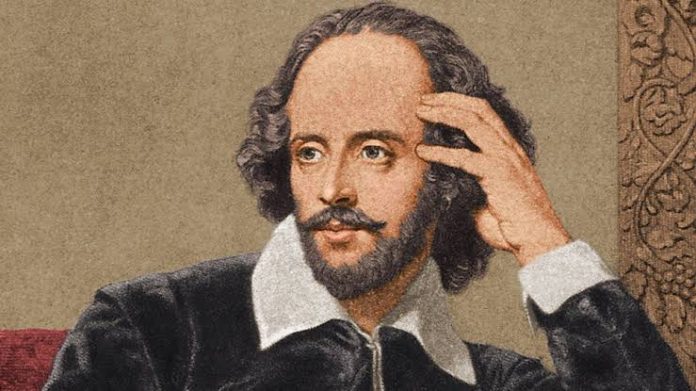-
Dec, Tue, 2023
William Shakespeare: Biography
William Shakespeare: Biography
William Shakespeare, widely regarded as one of the greatest playwrights and poets in the English language, was born in Stratford-upon-Avon, England, in April 1564. He was baptized on April 26, so his actual birthdate is assumed to be a few days earlier. He is celebrated for his exceptional contributions to literature, particularly in the fields of drama and poetry.

Shakespeare’s life is divided into several periods:
Birth and Childhood:
Born to John Shakespeare, a successful glove-maker and alderman, and Mary Arden, William was the third of eight children.
Education:
He attended the local grammar school in Stratford, where he would have studied Latin literature and other subjects.
Marriage:
In 1582, Shakespeare married Anne Hathaway, and they had three children: Susanna, and twins Hamnet and Judith.
London and Theatrical Career:
Around 1585, Shakespeare moved to London, where he established himself as an actor and playwright.
Writing:
He wrote numerous plays, including tragedies (like “Hamlet,” “Othello,” “Macbeth,” and “King Lear”), comedies (such as “A Midsummer Night’s Dream,” “Twelfth Night,” and “As You Like It”), and histories (like “Henry IV,” “Richard II,” and “Richard III”).
Poetry:
His collection of sonnets, 154 in total, also gained significant acclaim. These sonnets explore themes of love, beauty, mortality, and the passage of time.
Return to Stratford:
Shakespeare retired to Stratford around 1613 after a successful career in the theater.
Death:
He passed away on April 23, 1616, in Stratford-upon-Avon at the age of 52.
Legacy:
Shakespeare’s works have had an immeasurable influence on literature, theater, and the English language. His plays have been translated into every major language and are performed more often than those of any other playwright. His impact on the English language is immense, having coined many phrases and words that are still in use today.
Authorship Debate:
Some theories speculate that Shakespeare might not have been the true author of the works attributed to him, but these claims lack substantial evidence and are widely rejected by the scholarly community.
Biographical Details:
Due to the lack of comprehensive records from his time, there are gaps in Shakespeare’s biography, leading to speculation and interpretation regarding certain aspects of his life.
Wealth
Whereas John Shakespeare had lost a fortune, his son managed to amass great wealth in his lifetime.
In 1597, he bought New Place, one of the largest properties in Stratford. In 1598, he is listed as a resident of Chapel Street ward, in which New Place was situated. In 1601, when his father died, he may also, as the eldest son, have inherited the two houses in Henley Street.
In 1602 Shakespeare paid £320 in cash to William Combe and his nephew John for roughly 107 acres of land in Old Stratford.
He also bought a cottage and more land in Chapel Lane. In 1605, for £440, Shakespeare bought a half-interest in a lease of many tithes which brought him an annual interest of £60. When he died in 1616, he was a man of substantial wealth.
Many of his plays were published in editions of varying quality and accuracy during his lifetime. In 1623, John Heminges andHenry Condell, two friends and fellow actors of Shakespeare, published the First Folio, a collected edition of his dramatic works that included all but two of the plays now recognised as Shakespeare’s. It was prefaced with a poem by Ben Jonson, in which Shakespeare is hailed, presciently, as “not of an age, but for all time”. In the 20th and 21st centuries, his work has been repeatedly adopted and rediscovered by new movements in scholarship and performance. His plays remain highly popular today and are constantly studied, performed, and reinterpreted in diverse cultural and political contexts throughout the world.
Despite the uncertainties and mysteries surrounding certain parts of his life, William Shakespeare’s literary legacy remains unparalleled, making him an iconic figure in the history of English literature and theater.
